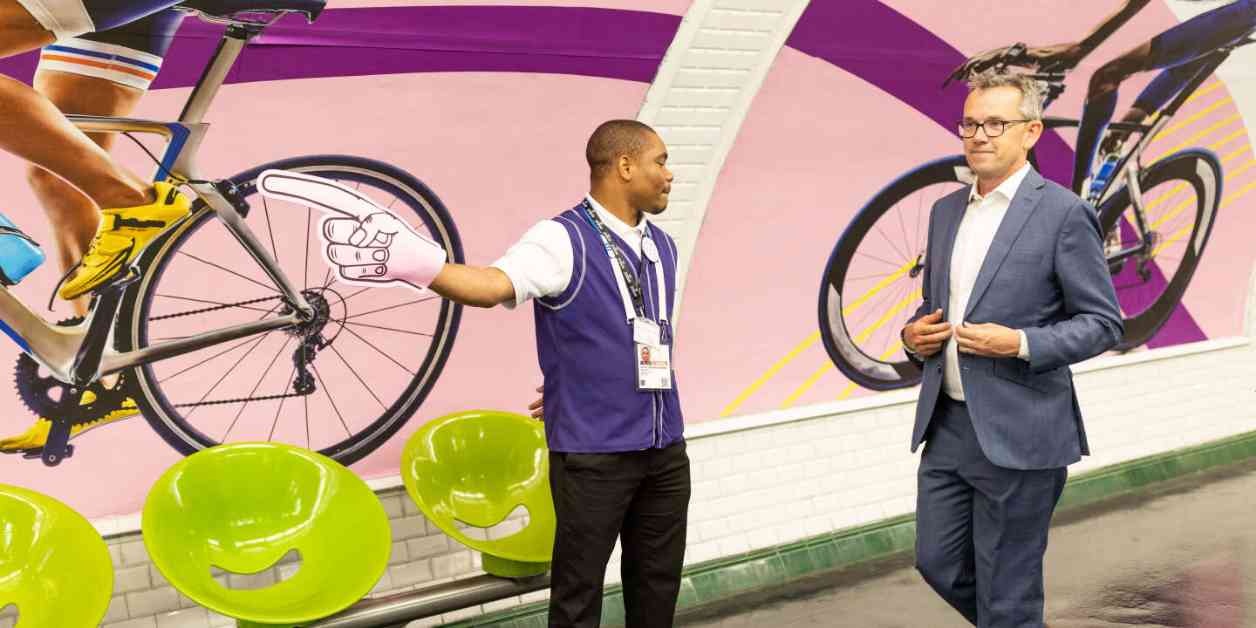Paris Public Transport Success Post-Olympics: Upholding the Momentum
Following the successful two weeks of the Olympics in Paris, France’s public transport networks RATP and SNCF showcased their efficiency and reliability. As the city transitions from the “enchanting interlude of the Games” to the back-to-school period and the upcoming Paralympic Games, the challenge lies in maintaining the high standards set during the Olympic events on the bustling Ile-de-France transit network.
The promise of making the Olympic Games fully accessible by public transport, bicycle, or on foot was fulfilled, exceeding expectations. Even residents of Ile-de-France, who typically have a love-hate relationship with the metro and RER, found themselves impressed with the seamless transportation services. Tourists were also delighted with the assistance provided by the numerous staff in purple vests, ensuring a comfortable journey except during stadium exits, even with the adjustments made for the summer schedule. Both RATP and SNCF rose to the occasion, meeting the demands of the influx of visitors during the Olympic Games.
At the RER C operations center on August 6th, Séverine Lepère, the SNCF network director for Ile-de-France, proudly displayed a near-perfect statistic of 99.05% of trains running on time. This exceptional performance on one of Ile-de-France’s oldest lines, which often faces challenges, highlighted the dedication and efficiency of the transport operators. Similarly, at the RATP headquarters, CEO Jean Castex showcased impressive results to the transportation minister, Patrice Vergriete, with 11 out of 14 metro lines exceeding regularity standards by more than 100%. This demonstrated the well-preparedness of the authorities, running more services than required by Ile-de-France Mobilités (IDFM), the transport organizing authority.
In a show of appreciation, Vergriete hosted a gathering for the transport operators, including RATP, SNCF, Keolis, and Transdev, to commend their efforts. Special recognition was given to the SNCF Réseau railway workers who swiftly repaired three high-speed lines that were sabotaged on the day of the opening ceremony. The heroic actions of the four agents from the southeast line, who thwarted saboteurs at Vergigny (Yonne region), were also celebrated, showcasing the dedication and bravery of the railway workers.
Valérie Pécresse, the president of the Ile-de-France region and IDFM, announced that 3.5 million Parisians stayed in the city during the Games, with an additional 500,000 spectators transported daily by IDFM. The extra revenue generated during this period was projected to cover the €250 million budget allocated to enhance transport services compared to a typical summer. Pécresse assured residents that there would be no Olympic debt, emphasizing the positive outcomes of hosting the Games.
As Paris looks ahead to the Paralympic Games and beyond, the success of the public transport system during the Olympics serves as a testament to the city’s capabilities and commitment to providing efficient and accessible transportation services. The challenge now is to maintain this momentum and continue to deliver exceptional services to residents and visitors alike.













